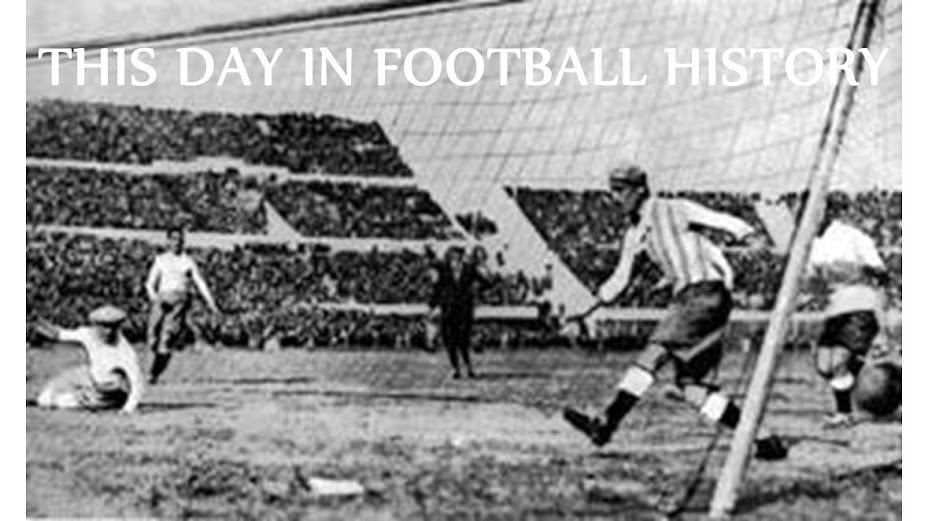 On 16 July 1950, Uruguay won the World Cup by beating Brazil 2-1 at the Estadio do Maracanã in Rio de Janeiro. The paid attendance was 173,850, but many reports place the actual attendance closer to 200,000.
On 16 July 1950, Uruguay won the World Cup by beating Brazil 2-1 at the Estadio do Maracanã in Rio de Janeiro. The paid attendance was 173,850, but many reports place the actual attendance closer to 200,000.The 1950 tournament was Uruguay's first since winning the inaugural 1930 tournament and it was the first World Cup to be held since 1938, as the tournaments scheduled for 1942 and 1946 were cancelled due to World War II. A number of countries, such as Japan and the newly-divided Germany, were unable to compete, leaving only 13 teams to participate. As a result, FIFA changed the format so that the winner was determined by a four-team round-robin as opposed to a knockout stage.
Going into the final match, Brazil was one point ahead of Uruguay in the standings, which meant that the hosts would claim the trophy with either a win or a draw. The Brazilians were heavy favorites, with overwhelming victories against Sweden (7-1) and Spain (6-1) in their first two matches of the round-robin. Uruguay, on the other hand, had drawn with Spain (2-2) and had come from behind against Sweden with an 84th-minute matchwinner (3-2).
Reportedly, FIFA President Jules Rimet was so confident in a Brazil victory that he had already prepared a post-match speech in Portuguese to congratulate them. Similarly, the Brazilian Football Confederation had prepared winners' medals for each of the Brazilian players.
Uruguay was unwilling to play the role of sacrifical lamb, however. Disregarding the defensive strategy devised by their manager, Juan López, the Uruguayan side attacked the favorites, a decision that appeared unwise when Brazilian forward Friaça gave the hosts a 1-0 lead in the 47th minute. But Uruguay's attacks paid off as they equalized in the 66th minute with a goal from forward Juan Alberto Schiaffino, then took the lead with a strike from winger Alcides Ghiggia, who was Schiaffino's teammate at Uruguayan club Peñarol.
According to Rimet, Ghiggia's goal had a dramatic effect on the crowd, saying "the silence was morbid, sometimes too difficult to bear." And, in fact, two Brazil supporters in attendance were shaken so badly by the loss that they committed suicide by jumping off the stands.
The match gave rise to the slang term "Maracanazo," which refers to any upset in the Maracanã of the Brazilian national team or any of the Big Four Brazilian clubs (Flamengo, Fluminense, Vasco da Gama, and Botafogo). After the match, the Brazilian national team determined that their white and blue kit was jinxed, so they changed to the yellow, green, and blue kits they wear today.

No comments:
Post a Comment
Note: Only a member of this blog may post a comment.